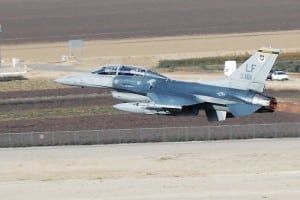
BAE Systems and Greece are discussing upgrading three different configurations of the Mediterranean nation’s fighter jet fleet, including F-16s, with potentially 90-140 jets that could receive work, according to a company executive. BAE Systems Vice President and General Manager for Global Fighter Jet Programs John Bean told Defense Daily Friday the company received a request for information (RFI) from Greece and has had a company team there briefing them on BAE's capabilities. The company is beginning a major F-16 upgrade…












